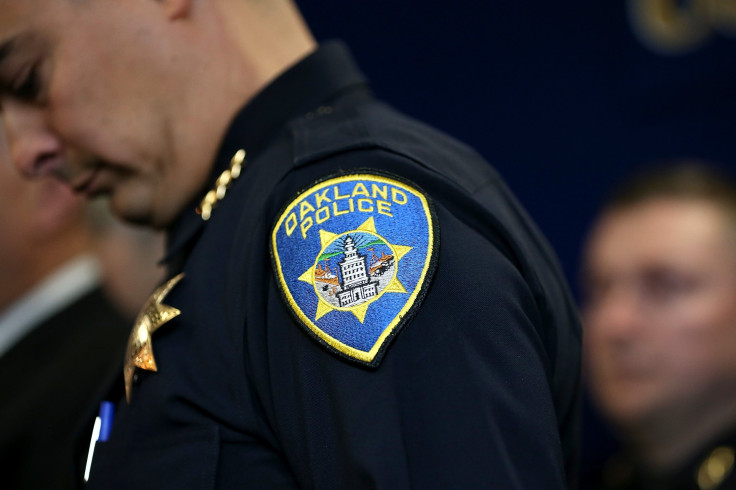Oakland Police Use Less Respectful Language With Black Residents, Study On Body Camera Footage Shows

Police use less respectful language when communicating with black residents than with white residents, according to Stanford University research. In a new study, published in the journal Proceedings of the National Academy of Sciences, researchers analyzed 183 hours of body camera footage, showing nearly 1,000 traffic stops, among police officers in Oakland, California. While many Americans have long believed black people are treated less favorably by police officers, this is the first study to analyze linguistics among officers.
“Our findings highlight that, on the whole, police interactions with black community members are more fraught than their interactions with white community members,” study co-author Jennifer Eberhardt said in a news release.
The research team developed a new technique to measure respect in officers’ language, which they then applied to the transcripts from one month’s worth of traffic stops. The technique revealed many findings, including that white residents were 57 percent more likely than blacks to receive apologies and “thank you's,” while black residents were more than 60 percent more likely than whites to be greeted with words like “dude” and “bro.” Examples of the language used by the officers can be seen in the graphic below.
“To be clear: there was no swearing,” study co-author Dan Jurafsky said. “Police departments can use these tools not only to diagnose problems in police-community relations but also to develop solutions.”
Jurafsky and his colleagues' analysis of the data involved a multi-step approach. First, study participants viewed samples of transcribed conversations between officers and motorists, without knowing their race or gender, and were asked to rate the officers’ language on respectfulness and formality, among other characteristics. Next, the research team used the ratings to develop a computerized model which was able to automatically select specific words, phrases, and patterns from the transcriptions. Lastly, the team used their software to look at all of the transcriptions.
“Our findings are not proof of bias or wrongdoing on the part of individual officers,” Eberhardt said. “Many factors could drive racial disparities in respectful speech.”
While the findings measure treatment by the officers, the data does not show if the behavior was provoked by the motorists, but Eberhardt and her team would like to further explore this. However, two aspects of the current study suggest drivers may not play a role. For example, the study participants were shown context of the conversations, PBS reported.
“Understanding and improving the interactions between the police and the communities they serve is incredibly important, but the interactions can be difficult to study,” Jurafsky said. “Computational linguistics offers a way to aggregate across many speakers and many interactions to detect the way that everyday language can reflect our attitudes, thoughts and emotions – which are sometimes outside of our own awareness.”
© Copyright IBTimes 2024. All rights reserved.





















